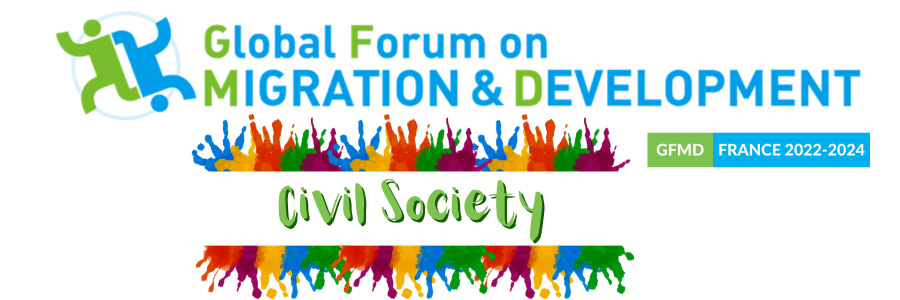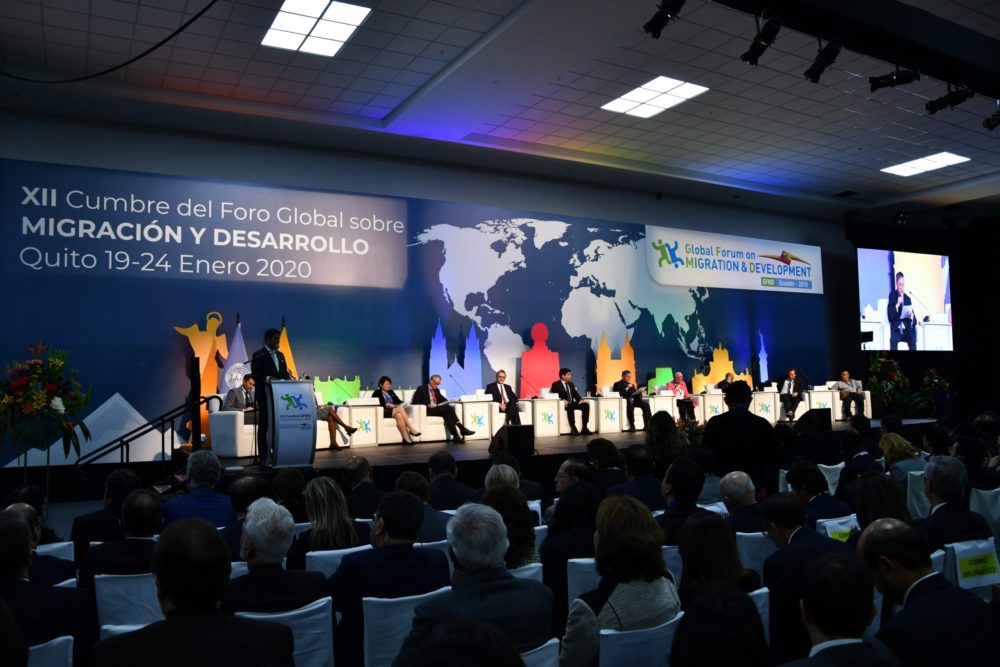Seven meetings, six themes and a special breakout session to foster constructive conversations in the lead up to the GFMD UAE Summit
As part of the year-long preparation of the 2020 Global Forum on Migration and Development, the current Chairmanship of the United Arab Emirates (UAE) convened meetings for six key regions: Africa, the Americas, the Middle East and South Asia, Asia Pacific, and Europe. Due to the COVID-19 pandemic, all meetings were held online in 3 parts: an opening plenary, breakout sessions, and a closing plenary.
The Regional Conference on Migration (RCM) – also known as the Puebla Process – was the second round of GFMD regional consultations to be concluded. The RCM is a pan-American forum, bringing together 11 Member States from North and Central America. Representatives of members of the South American Conference on Migration also participated, as well as stakeholders from civil society, business and local government.
As each meeting had to choose three of the proposed six themes, this time the focus was on the skilling of migrants, filling gaps in migrant protection, and addressing the challenges of irregular migration. The RCM also hosted a special breakout session on Public Narratives on Migration, intended to explore best practices in communication about migration.
“We have to create the conditions under which migration is not only an opportunity to survive, but an option for a dignified, full and non-discriminatory life” – the GFMD Regional Consultation with the Americas
Silvia Raqec, from Asociación Pop No’j and Coordinator of the Migration Hub, intervened on behalf of Civil Society organizations from North, Central America and the Dominican Republic, stressing the importance of civil society participation in these consultations as direct expression of the work carried out with migrants on the ground.
However, the civil society rapporteur expressed the concern for the failing in organizing another regional consultation for South America and the Caribbean. In her words, each sub-region of the American continent has its own and complex dynamics and challenges and a South American Migration Conference would have better expressed the peculiarities of the Southern region.
Commenting on the breakout sessions, Silvia pointed out that, “The first step must be the non-discriminatory application of labor legislation. A key element to ensure the conditions for migrants to be trained for employment is to create pathways for migration regularization. This should be a priority in the area of labor migration, to avoid labor exploitation and human trafficking”.
In the end, she reiterated the necessity of a more inclusive approach, gender sensitive, with protection programs and responses according to needs, also in order to shed light on the LGBTI migrant population, and to respect the right to cultural identity of indigenous people.
Click here to read Silvia’s full intervention (in Spanish)
For more information about the regional meetings, please consult the following page

